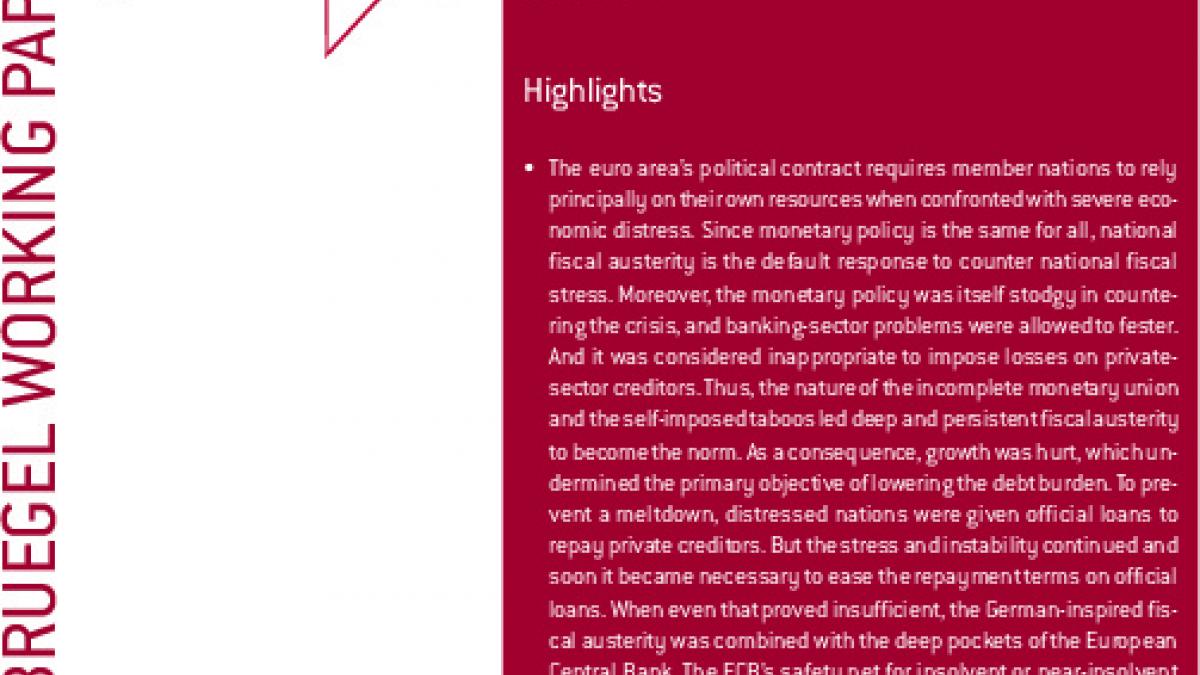Living (dangerously) without a fiscal union
The euro area’s political contract requires member nations to rely principally on their own resources when confronted with severe economic distress. S

The euro area’s political contract requires member nations to rely principally on their own resources when confronted with severe economic distress. Since monetary policy is the same for all, national fiscal austerity is the default response to counter national fiscal stress. Moreover, the monetary policy was itself stodgy in countering the crisis, and banking-sector problems were allowed to fester. And it was considered inappropriate to impose losses on private sector creditors.
Thus, the nature of the incomplete monetary union and the self-imposed taboos led deep and persistent fiscal austerity to become the norm. As a consequence, growth was hurt, which undermined the primary objective of lowering the debt burden. To prevent a meltdown, distressed nations were given official loans to repay private creditors.
But the stress and instability continued and soon it became necessary to ease the repayment terms on official loans. When even that proved insufficient, the German-inspired fiscal austerity was combined with the deep pockets of the European Central Bank. The ECB’s safety net for insolvent or near-insolvent banks and sovereigns, in effect, substituted for the absent fiscal union and drew the central bank into the political process.